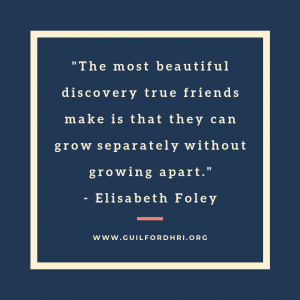
Quality Time
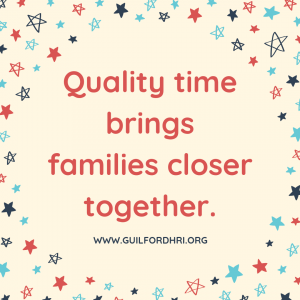
Be intentional about spending quality time with your loved ones! When you set aside time to connect, have fun, and create memories, you can strengthen your relationships and bring your family closer together.
HRI and Greensboro Children’s Museum Partner to offer Proactive Parenting Series of Workshops
HRI and Greensboro Children’s Museum Partner to offer Proactive Parenting Series of Workshops

The Healthy Relationships Initiative and Greensboro Children’s Museum invite you to come and learn tips and strategies on how to become a proactive parent. In the 3-part workshop series, we’ll explore ways to navigate conflict, promote kindness and responsibility, and prepare for school transitions. Each workshop is free and open to the public. To register, visit www.gcmuseum.com. You may register for one or all of the workshops.
We look forward to seeing you there!
A Healthy Relationship
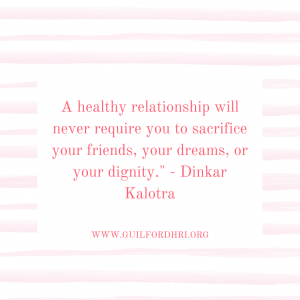
Your future
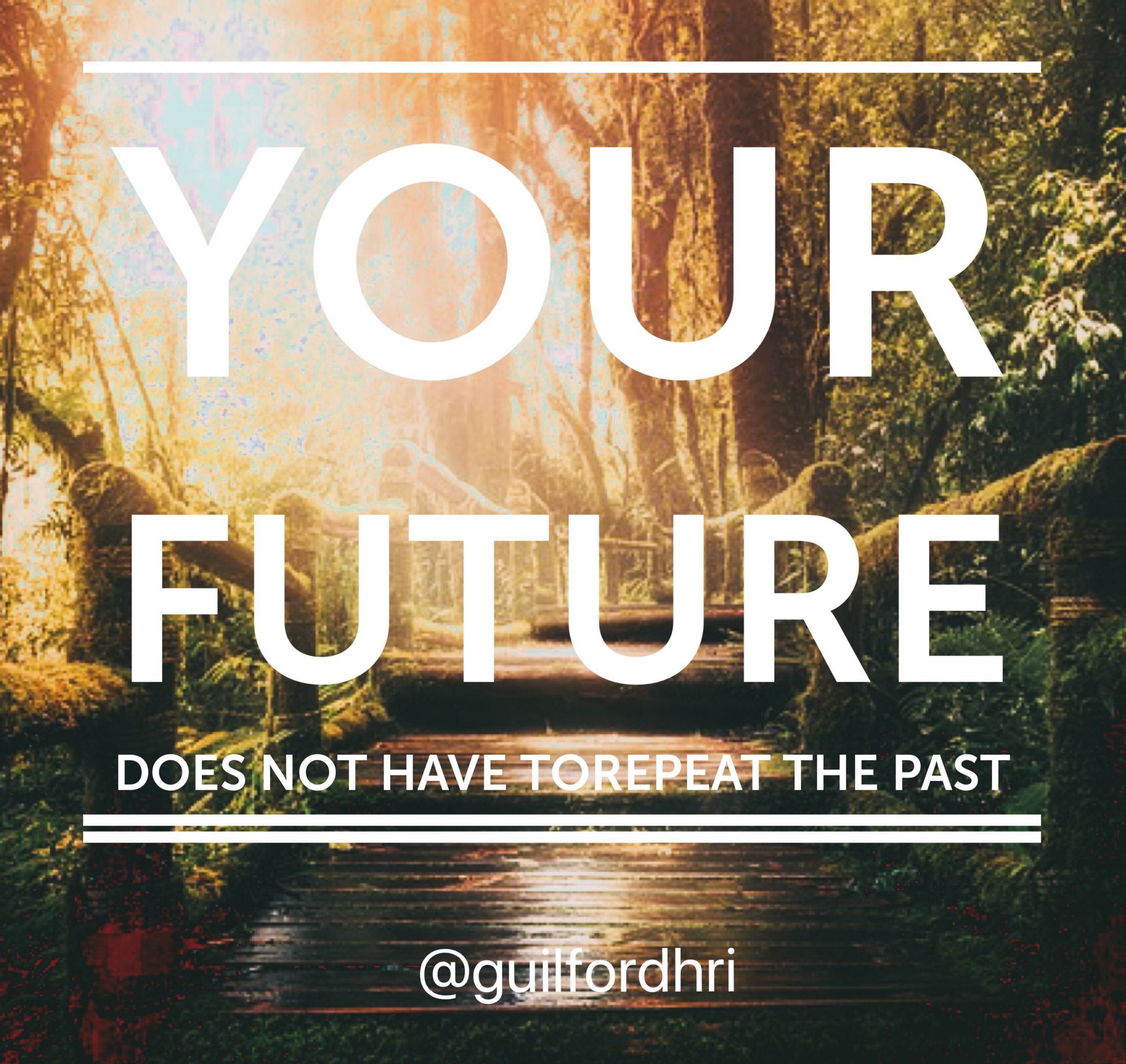
If you’ve had a lot of challenges in past relationships–or even in your current relationships–know that you aren’t destined to repeat the mistakes and hurts of the past. Be intentional about building new relationship skills to strengthen your relationships from today on!
Workshop for Teenage Girls in Partnership with Reconsidered Goods
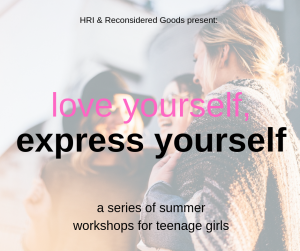
Reconsidered Goods and UNCG’s Healthy Relationships Initiative are partnering together this summer for Love Yourself, Express Yourself, a workshop series designed for teenage girls who want to learn more about strengthening healthy relationships.
Do you enjoy crafting and getting to know other people your age? Are you looking for something fun to do with your girlfriends? Join us at Reconsidered Goods for monthly art activities focused on fostering self-care practices, self-expression through the arts, strengthening leadership skills and setting effective goals. Workshops are $10 each with all materials provided. All workshops are for participants ages 13-19 and take place at Reconsidered Goods. Please contact us at laura@reconsideredgoods.org for scholarship information.
Click here to register for the July 10th workshop.
Click here to register for the August 14th workshop.
The Quality Of Your Relationships

Practice Forgiveness

Another key element in being a healthy relationship role model to kids is to practice forgiveness. Forgiveness is a powerful relationship tool that can promote growth, healing, and connection!
When your children make mistakes, use those moments as a learning opportunity and model forgiveness. Talk to your kids about why their actions were hurtful, and be sure to express that you love and forgive them. This is a wonderful opportunity for your children to learn the healing power of forgiveness for both the person being forgiven, as well as the person doing the forgiving.
Check out our “Forgiveness” series for more information!
Teach Them How To Apologize
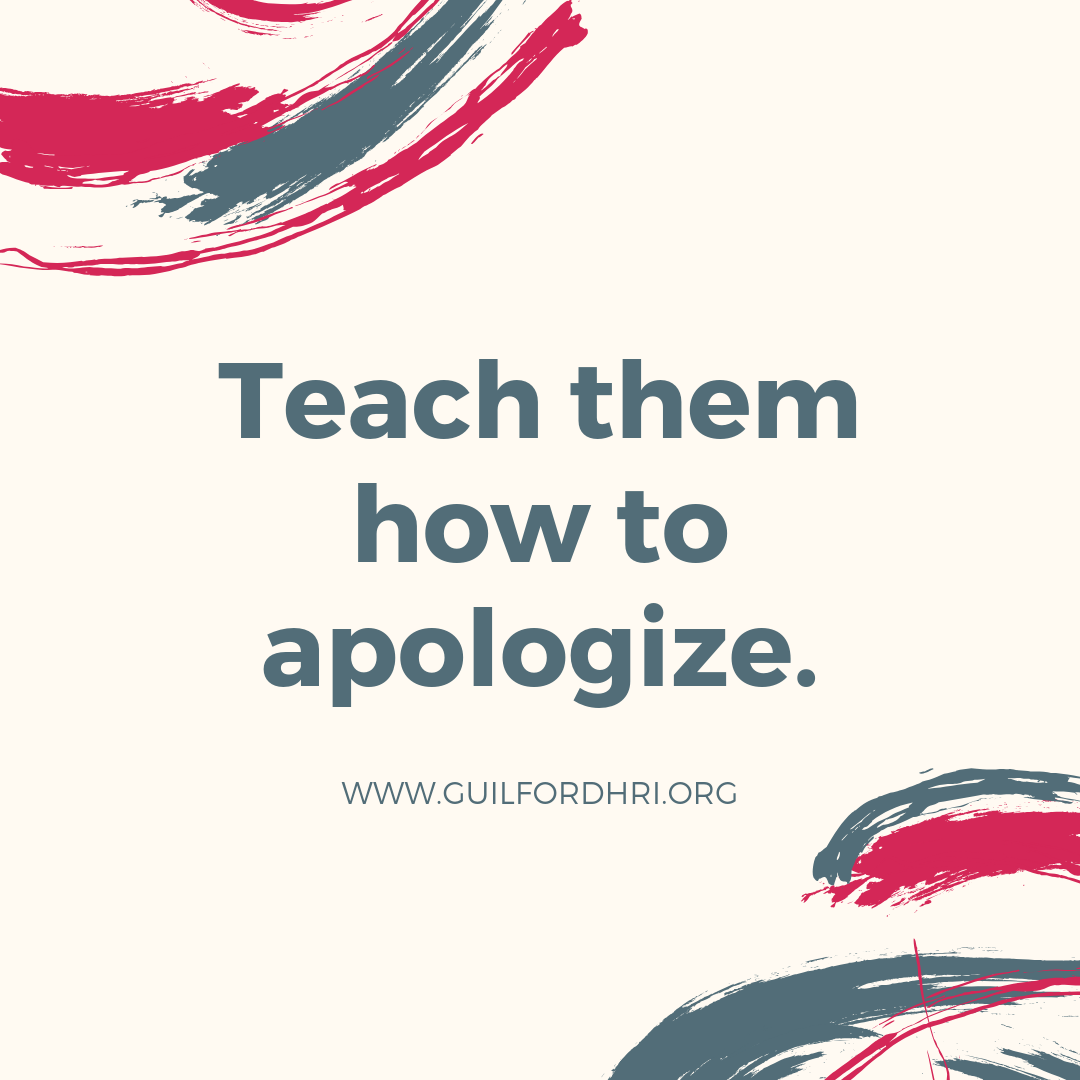
An important part of creating and maintaining healthy relationships involves owning your mistakes and apologizing. When you recognize your role in hurting someone’s feelings regardless of your intent, you can work towards repairing the relationship and building an even stronger connection.
When you make a mistake or do something to hurt or upset someone, it is important to take ownership of your actions and apologize. This is especially important to do in your relationship with your child, as it will show them what it looks like to take responsibility for their actions and mistakes and how to apologize and work towards repairing the relationship. Remember, a simple, “I’m sorry,” can be a big step in developing stronger, healthier relationships.
Own Your Emotions

An essential part of being a healthy relationship role model is owning your emotions. This means taking responsibility for your emotions and reactions and expressing your feelings in a healthy way.
An important part of modeling healthy emotional expression is teaching your kids that it is okay to get upset or feel afraid, while also showing them how to express these emotions in a healthy way. This may look like communicating with your kids when you are upset or angry with them and saying that you need to take a break to calm down. By modeling this behavior in your relationships with your children, they will have a better understanding of how to respond when they feel upset with you, other adults, or their friends.
When you take ownership of your emotions and show that only you can control what you feel, you are teaching your kids to take responsibility for their feelings and reactions, which will help them develop happy, healthy, and safe relationships in the future.
